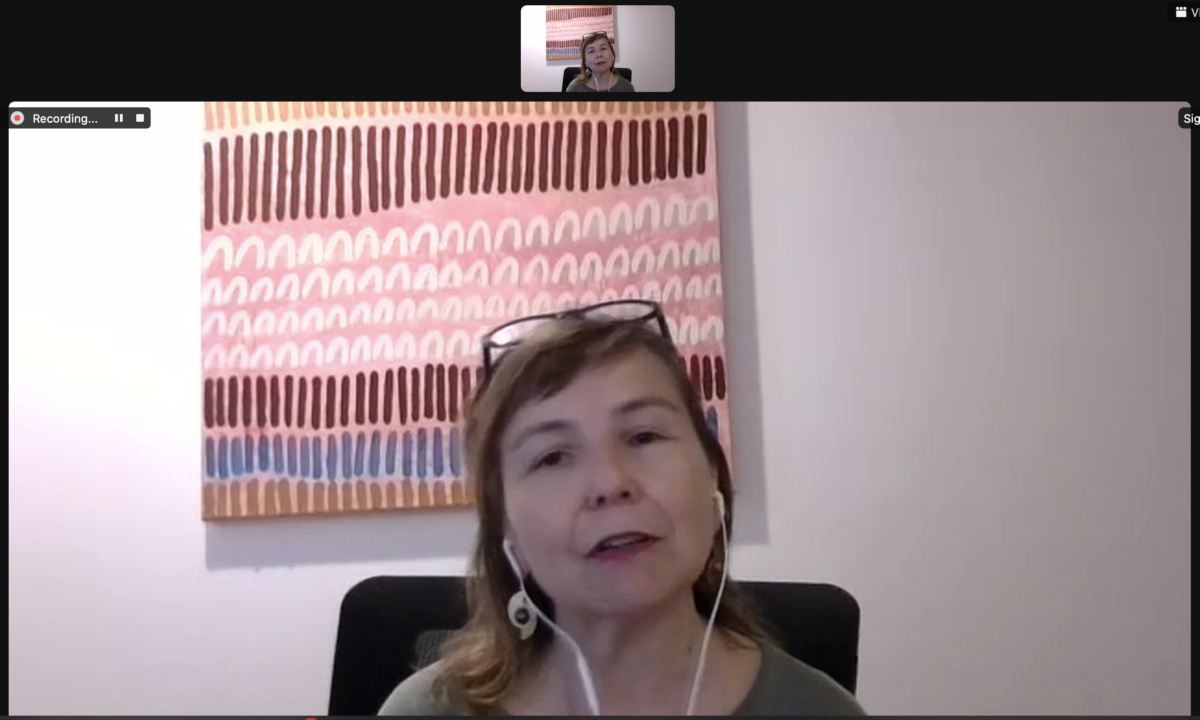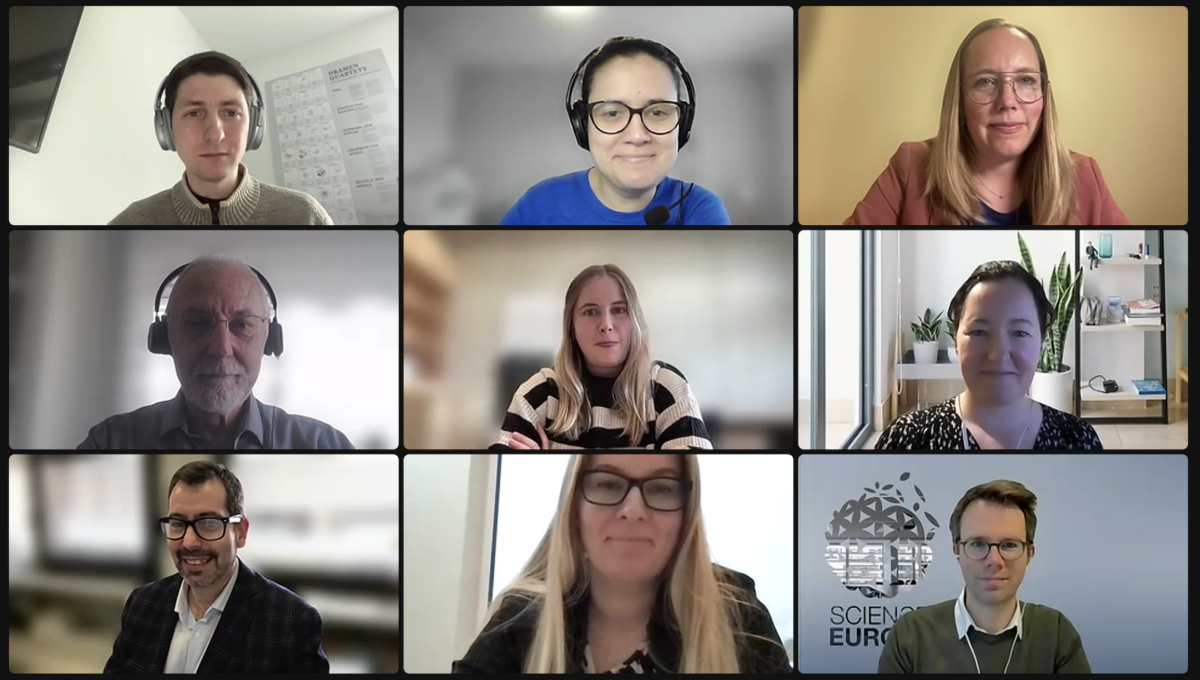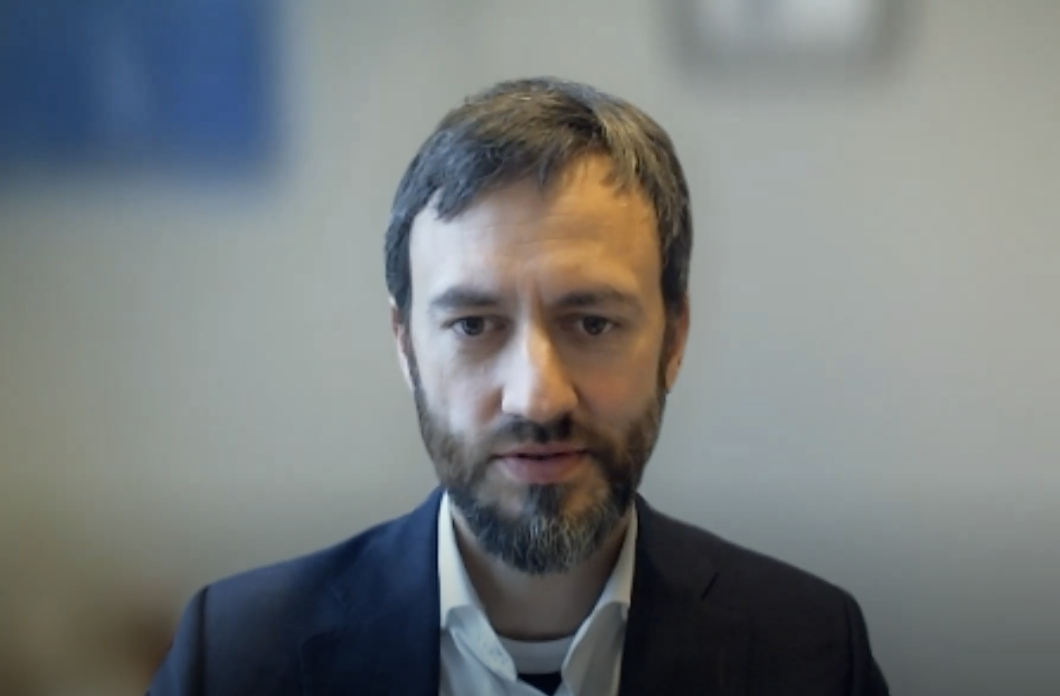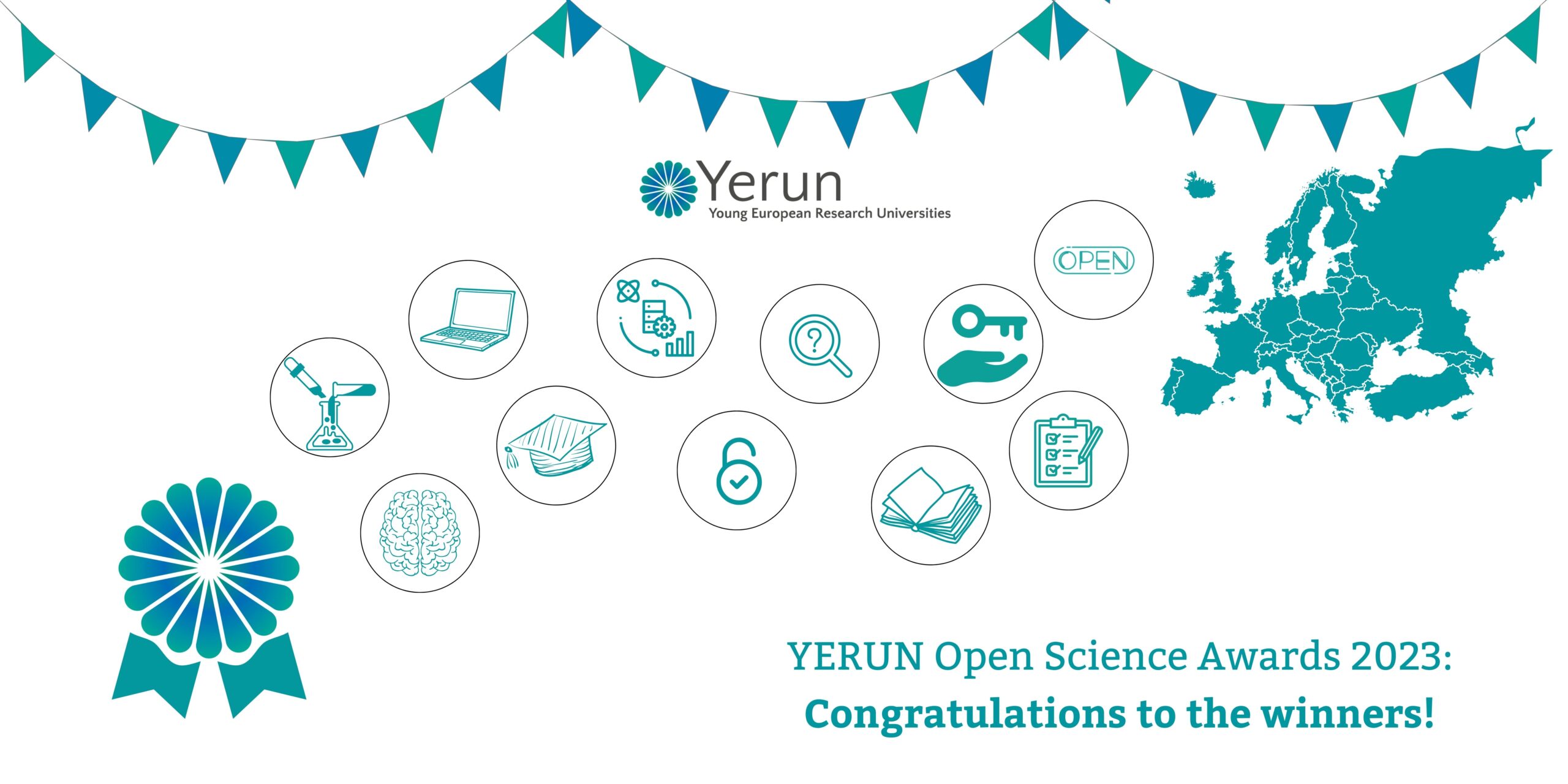We are delighted to share a recap of the YERUN Open Science Awards Ceremony which was just concluded! The event was a resounding success, bringing together YERUN members, esteemed guests, and stakeholders from across Europe to celebrate advancements in Open Science.
The ceremony started with a warm welcome from YERUN Secretary General, Silvia Gomez Recio, offering insights into the evolution of the YERUN Open Science Awards since its inception. Silvia highlighted the significant milestones achieved, including the successful pilot launch in 2021 and the two subsequent editions. Altogether, these led to 87 applications received and 12 grants awarded in the course of the first three calls.

Prof. Eva Mendez, Associate Professor at Universidad Carlos III de Madrid, former co-chair of the Open Science Policy Platform and Board member of CoARA, captivated the audience with her inspiring address, which shed light on the pivotal role of open knowledge in academia and beyond. Prof. Mendez’s advocacy for open science principles resonated deeply, inspiring attendees to embrace transparency and collaboration in their research endeavours.
YERUN Policy Officer, Chiara Colella presented the key features of the YERUN Open Science Awards, explaining the rigorous evaluation process and criteria used to assess applications. She introduced the members of the final evaluation panel, whose expertise and dedication played a vital role in selecting the award-winning practices: Bregt Saenen, Senior Policy Officer at Science Europe; Inma Andres, Student Programme Manager & Research Advisor, Brunel University London and YERUN Coordinator at Brunel; Katrine Sundsbø, former member of the YERUN ad hoc group on Open Science and currently community manager at the Directory of Open Access Journals and Kostas Glinos, former Head of Unit on Open Science in DG RTD, European Commission.
The ceremony reached its pivotal moment with the announcement of the winning practices by the final evaluation panel. Each member unveiled the winning initiatives, highlighting the key features leading to their final selection. Following the announcement, recipients had the opportunity to present their award-winning practices with the participants. The presentations showcased the diverse range of innovative projects and initiatives that are driving positive change in open science.

The five winning projects are:
- GLOBAL HISTORY DIALOGUES, submitted by Marcia Schenck, Professor of Global History at the University of Potsdam. This initiative aims to empower citizens from around the globe to become producers of global history. Presentation available at this link.
- LADA – Open Digital Archaeology Lab, submitted by Jesus Bermejo Tirado, Associate Professor of Ancient History at UC3M, aims to involve a broad sector of the population in the process of digitising, analysing, and disseminating the archaeological heritage documented in the Community of Madrid. Presentation available at this link.
- Algorithms and Artificial Intelligence Transfer project, submitted by Laura Wirth, researcher at the University of Konstanz, on behalf of a team of 23 researchers and students from different departments, through a meaningful involvement of society, aims to carry knowledge about algorithms and AI to people in society who are less familiar with these topics. Presentation available at this link.
- Bioconductor Community Advisory Board, submitted by Aedin Culhane, Professor of Cancer genomics at the University of Limerick, and Maria Doyle, Bioconductor Community Manager, is an open-source software project in the R statistical language, widely used in bioinformatics and biomedical research. The aim of the project is to support community needs in terms of outreach for better communication and high-quality global training. Presentation available at this link.
- DraCor – Drama Corpora (Making European drama accessible for computational research,) submitted by Prof. Daniil Skorinkin from the University of Potsdam of behalf of a team, is an open collection of play in different European languages, as well as a research data provider. Dracor also serves for educational purposes in study courses, classes and workshops on digital humanities, computational literary studies, open science and digital preservation of cultural heritage. Presentation available at this link.

The event was concluded with interesting insights on the future of open science in Europe by Mr. Dejan Dvorsek, Deputy Head of Unit on Open Science & Research Infrastructures in DG RTD, European Commission. Mr Dvorsek ‘s reflections offered valuable insights into emerging trends and opportunities in the open science landscape. Presentation available at this link.
In her closing remarks, Silvia Gomez Recio expressed gratitude to all attendees for their participation and support. She encouraged attendees to explore the open access materials available on the YERUN website, providing valuable resources for institutions looking to implement their own open science awarding schemes.
YERUN would also like to congratulate the other three pre-selected practices of this year’s edition:
- ApiVoT – Open-access educational resources on pivot translation is an initiative by NOVA University Lisbon offering research-based educational resources freely accessible in multiple languages. Developed collaboratively with translation trainers, students, and key decision-makers in translation education, ApiVoT addresses a critical need for open-access teaching materials. Comprising 41 videos enriched with interactive elements, ApiVoT supports the teaching of pivot translation—an essential method in translating digital content—particularly in minority languages. Its mission is to bridge the gap in translation education, empowering trainers and learners globally.
- OSS – Open Science Spotlight is a joint initiative of the Team Open Science in the Communication, Information and Media Centre (KIM) and the Staff Unit Communications and Marketing (KuM) at the University of Konstanz. This innovative science communication format shines a spotlight on Open Science initiatives across diverse domains, prominently featured in the university’s online magazine. With a mission to showcase the institution’s Open Science activities in an accessible, editorially curated format, OSS targets academics, the general public, and professionals like journalists seeking in-depth insights into research and data. Access the OSS website here.
- ROAD2OPENNESS is an initiative led by the University of Potsdam, dedicated to establishing robust Open Science governance, guidelines, and support services from scratch. Leveraging the road2openness self-assessment tool, institutions worldwide can now embark on a journey towards Open Science excellence. As one of the selected pilot universities, the University of Potsdam collaborates in the development of road2openness, empowering others to assess and enhance their Open Science initiatives comprehensively. From Open Access publishing to Research Quality Management, ROAD2OPENNESS covers essential aspects, offering tailored recommendations for strategic growth.
As we reflect on the success of this year’s ceremony, we extend our congratulations to all the award winners and express our sincere appreciation to our speakers, participants, evaluators, and YERUN ad hoc group on Open Science for their invaluable contributions. We look forward to continuing our journey towards a more open, transparent, and collaborative research ecosystem!
If you missed the ceremony, do not worry! You can watch the recording here!
.
YERUN Open Science Awards: Open Access material
Are you inspired by the YERUN Open Science Awards and would you like to set up a similar scheme in your own institutions/networks? YERUN can help you! Find here all the useful material open access. You can personalise the scheme as you like. And do not forget to have a lot of fun in the process!










